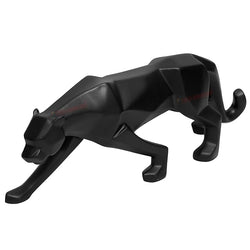Discerning truly sustainable products from those merely masquerading as eco-friendly—a practice known as greenwashing—can be challenging. Greenwashing involves companies making deceptive claims about the environmental benefits of their products to mislead consumers. To navigate this landscape and make informed purchasing decisions, consider the following strategies:
1. Understand Greenwashing Tactics
Greenwashing can manifest in various ways, including:
- Hidden Trade-offs: Emphasizing a single sustainable attribute while neglecting other significant environmental impacts.
- No Proof: Making claims without accessible evidence or third-party certification.
- Vagueness: Using broad terms like "all-natural" without clear definitions.
- Irrelevance: Highlighting environmental facts that are unimportant or unhelpful.
- Lesser of Two Evils: Claiming to be more sustainable than competitors without addressing the overall negative impact of the product category.
- Fibbing: Making outright false environmental claims.
These tactics were identified by TerraChoice in their "Seven Sins of Greenwashing" report. (Wikipedia)
2. Look for Reliable Certifications
Third-party certifications can provide assurance of a product's sustainability. Notable certifications include:
- Global Organic Textile Standard (GOTS): Ensures organic status of textiles, from harvesting to manufacturing.
- Fair Trade Certified: Guarantees fair wages and safe working conditions for producers.
- B Corp Certification: Indicates a company's commitment to social and environmental performance, accountability, and transparency.
These certifications demonstrate adherence to recognized environmental and ethical standards. (Lenvers Fashion)
3. Research the Brand's Practices
Investigate a company's overall environmental impact and sustainability initiatives:
- Transparency: Does the company openly share information about its sourcing, manufacturing processes, and supply chain?
- Sustainability Reports: Review any published reports detailing environmental goals and progress.
- Third-Party Audits: Check if the company's claims are verified by independent organizations.
Brands genuinely committed to sustainability are typically transparent about their practices and willing to provide detailed information. (University of Colorado Boulder)
4. Be Skeptical of Vague Claims
Be cautious of products labeled with ambiguous terms such as "eco-friendly," "green," or "natural" without specific explanations or certifications. These terms can be misleading and may not reflect genuine sustainability.
5. Evaluate the Product's Lifecycle
Consider the environmental impact of a product throughout its entire lifecycle:
- Materials: Are they sustainably sourced and biodegradable or recyclable?
- Manufacturing: Does the production process minimize energy consumption and waste?
- Packaging: Is it reduced, recyclable, or made from recycled materials?
- End-of-Life: Can the product be easily recycled or composted, reducing landfill waste?
Assessing these factors helps determine the true sustainability of a product.
6. Stay Informed and Educated
Keep abreast of common greenwashing practices and emerging trends in sustainability. Resources like the United Nations Environment Programme and consumer advocacy groups offer valuable information to help you make informed decisions.
By applying these strategies, you can better identify genuinely sustainable products and support companies that are truly committed to environmental responsibility, thereby contributing to a more sustainable future.





